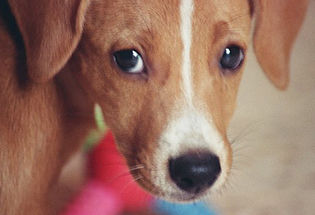Neck or back pain are two common causes of discomfort in our pets. You may notice subtle changes such as lack of jumping on/off of things, having difficulty with stairs, standing in a hunched position, difficulty getting comfortable laying down or getting up or even more severe symptoms such as weakness or dragging/stumbling over the hind legs.
Causes
Neck and back pain can have several causes from minor muscle spasms, sprains or strains to more serious problems like a bulging or slipped disc which could result in pinched nerves, weakness or even paralysis. Overexertion, jumping on or off of furniture, rough play, or simply twisting wrong can result neck or back pain. Less likely causes of back pain could include spinal or nerve tumors or infections of the fluid around the spinal cord. Serious injuries like pets that have been hit by a vehicle can have trauma that results in swelling around the spine or dislocation of the vertebrae (bones of the spine).
Diagnostics
An exam is done to try and isolate the exact location of the pain and to check nerve function and mobility. Radiographs are often advised to help look for signs of a bulging or slipped disc, bony changes to the spine (arthritis or cancer), and in cases of trauma to look for fractures or dislocations. If your pet is older and has not had routine blood testing, this may be recommended prior to starting on treatments to ensure that there are no underlying conditions that may hinder the use of certain medications.
For severe spinal trauma, disc disease or other conditions, referral to a neurologist may be advised. The neurologist will be able to run advanced diagnostics like a CT scan or MRI to take a detailed look at the vertebrae, discs and spinal cord. A myelogram is a test that is done to help determine the exact location of a bulging disc. In cases where infection or cancer is suspected a CSF (cerebrospinal fluid) or spinal tap is done. If surgery is needed as a form of treatment the neurologist is the doctor to perform the surgery.
Treatment
The mainstay of neck and back pain treatment is strict rest. No running, jumping, playing with other animals and restricting access to jumping on/off of furniture or into/out of vehicles is important.
Monitoring
Close monitoring is very important. In cases of slipped discs or swelling around the spinal cord, it is important to monitor the function of the limbs. If the legs become weaker, or if your pet is dragging or crossing over the legs when walking, cannot use the legs, or cannot control the bladder or bowel this is a sign of worsening or further pressure on the spinal cord an

